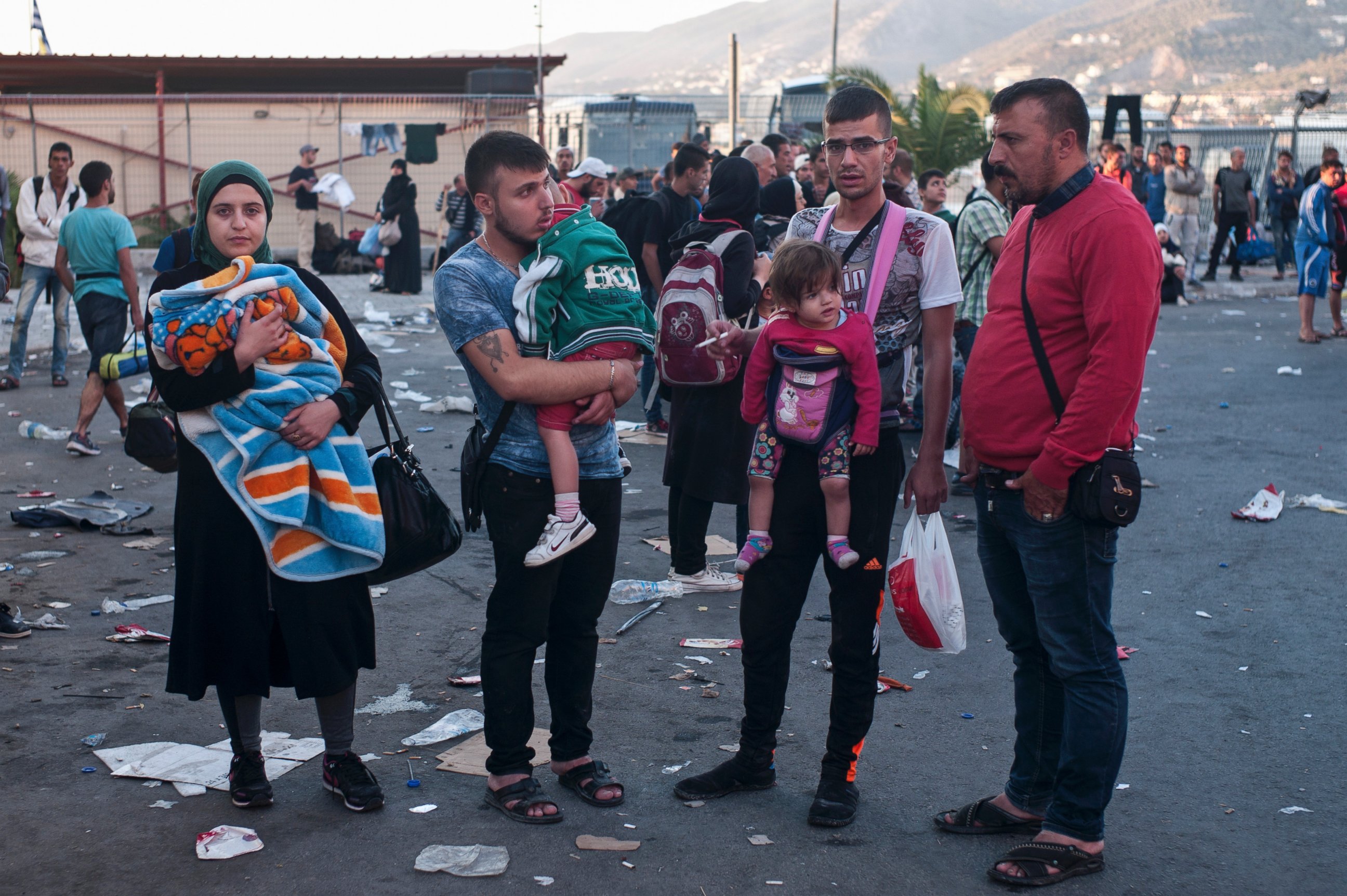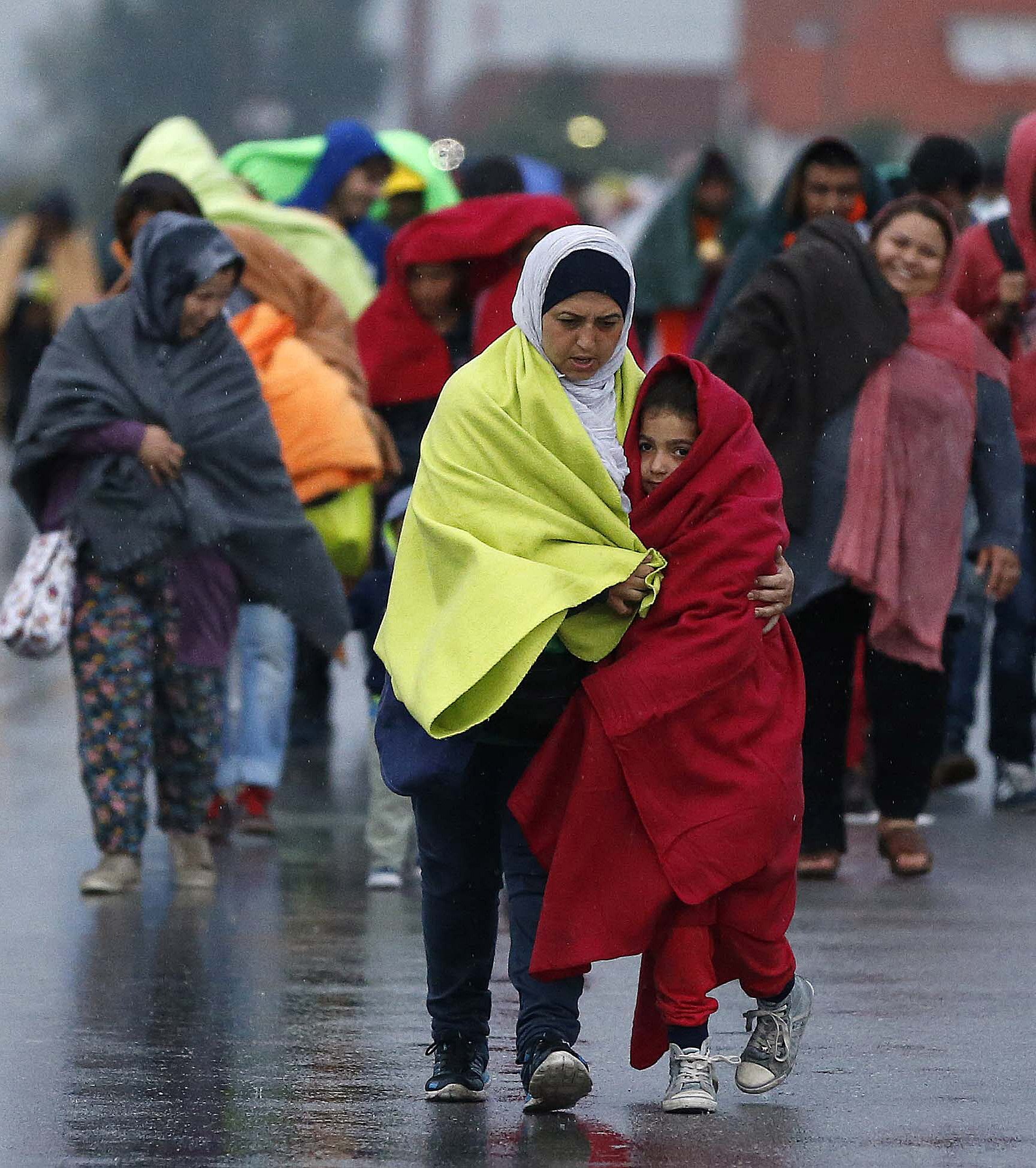From Turkey to Hungary and Beyond: Inside the Refugees' Journeys to Europe
Refugees received a warm welcome in Austria.
— -- Tens of thousands of people fleeing war-torn Syria and conflict elsewhere in the region are making the dangerous trek towards Western Europe in search of a better, safer life.
For most refugees coming from the Middle East, North Africa and South Asia, the safest and most commonly traveled path to Europe begins in Turkey. For Syrians, $100 and 24 hours will get you the 723 miles from Aleppo, Syria, to Izmir, Turkey.
In Istanbul -- and these days, mostly the coastal town of Izmir, Turkey -- human smugglers take thousands of dollars to get refugees a seat on flimsy, rubber boats headed for the Greek islands. With the boats overcrowded and hardly equipped for the high seas, 2,400 people have died on the water this year, according to the International Organization for Migration (IOM).
Once in Greece, the refugees go first to Macedonia, then Serbia, then Hungary, Austria and finally Germany. For many, that's the final destination, the dream destination. For others, they continue north to Scandinavia.
Though few speak a word of German, many of the refugees hail German Chancellor Angela Merkel as somewhat of a demi-God and the country is largely seen as the promised land for refugees. Unlike its EU neighbors, German officials say they expect to welcome 800,000 refugees this year alone.
That offer has led to a crackdown on refugees by neighboring Hungary, which forced many refugees to make the 150-mile trek to Vienna, Austria, on foot.
Here is how refugees are being welcomed at different stops along the journey:
TURKEY
In Turkey's upscale, coastal towns of Izmir and Bodrum, people were nice and sympathetic. Refugees slept everywhere, including parks and streets.
But the Turkish police are cracking down -- they cleared certain parks and used force with smugglers on beaches.
GREECE

In Greece, refugees disembarked and were greeted by Frontex, the EU agency that reinforces and streamlines cooperation between national border authorities, and by kind, local authorities.
At least one small island had a medical tent and a place to register.
At several restaurants, respectful waiters provided extra food and water.
SERBIA
In Serbia, the authorities controlled the long lines of tired, frustrated people without brutal force.
Serbs pulled up cars to deliver a bag of apples and water to passing walkers. Some people are offering up beds, showers and clothes when they can.
The families stopping in Belgrade are largely middle-class English speakers and are sleeping in the city's main parks.
HUNGARY
For days, Hungarian officials blocked refugees from leaving the country by train, forcing people instead to make the 150-mile trek to Vienna, Austria on foot. Local Hungarians provided donations as the refugees walked.
Early this morning, Hungary's government provided buses to bring people to the Austrian border.

AUSTRIA
About 4,000 people crossed from Hungary into Austria on Saturday and they received a warm welcome, including beds and hot tea.
The wet and weary travelers were exhausted, but smiling, waving and cheering.
Finland and the United Kingdom are also stepping in to help.
Finnish Prime Minister Juha Sipila said he would open his home to refugees beginning January 1. Sipila told Finnish broadcaster YLE that his family lives in Helsinki and they're not using their house in central Finland.
British Prime Minister David Cameron said Friday that the U.K. will accept "thousands more" refugees from Syria, though that will not directly impact the people who have been pictured making the perilous trek through Europe. The thousands they accept, Cameron clarified in a series of tweets, will be taking in people from inside already-established refugee camps along the Syrian border.
"Taking refugees direct from camps allows a safe route to the UK, rather than the hazardous journey that's cost so many lives," he wrote in one tweet.
The Associated Press contributed to this report.




